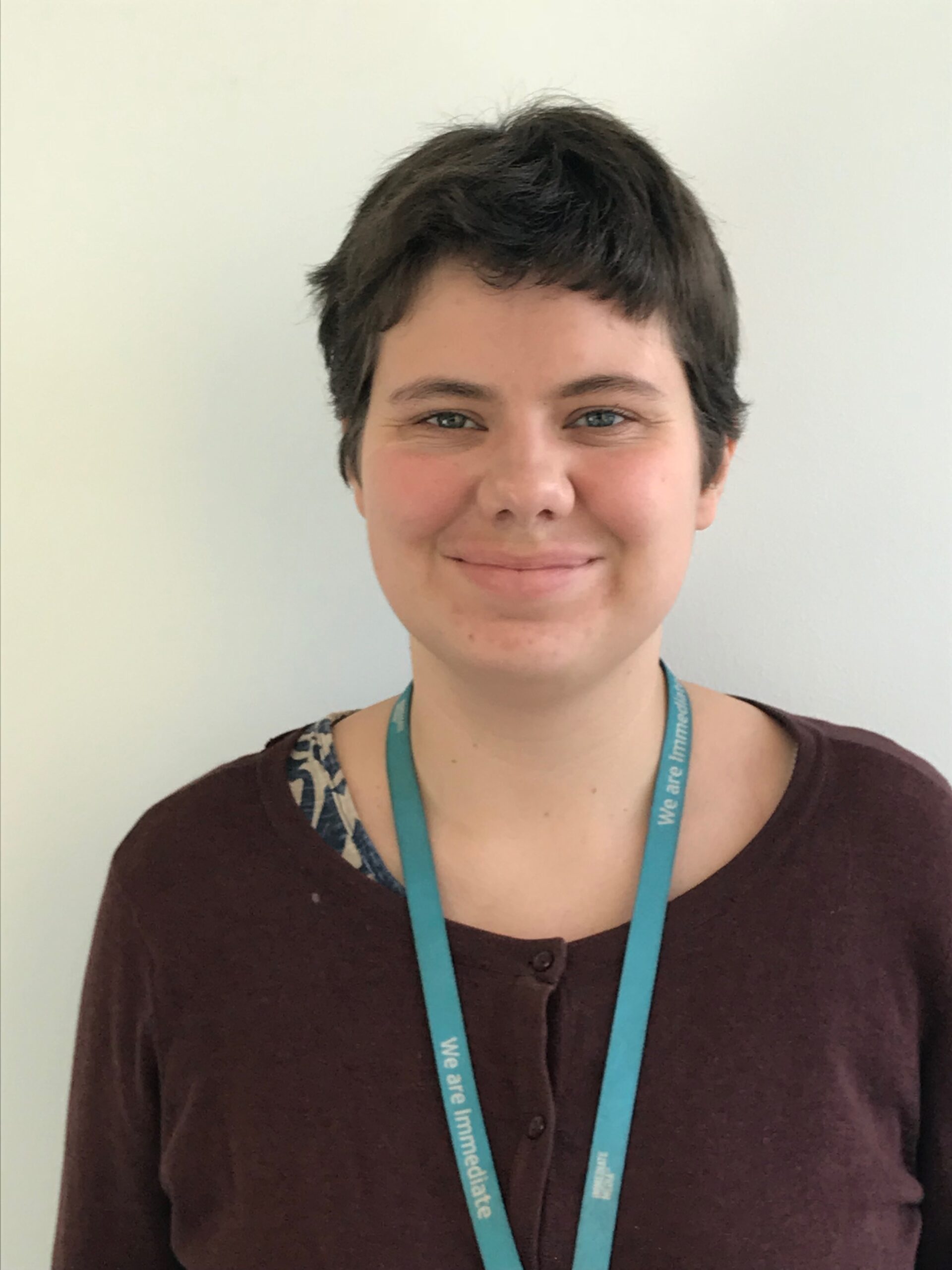Actor and comedian Diane Morgan, best known for playing ill-informed TV interviewer Philomena Cunk, was born on 5 October 1975 in Farnworth in Bolton. At the start of her episode of Who Do You Think You Are?, she jokes that she “never thought in a million years” she’d be invited to be on the family history programme after making fun of it on her series Mandy. However, she’s pleased to take part: “My only reservation about doing this show was doing the slow head turn at the start… Please don’t make me do the slow head turn. It’s so embarrassing.”
After the opening credits (and one slow head turn from Diane), she explains what she wants to find out about her family history: she wants to know more about an ancestor her father always called “German Charlie”, and about her Scottish 2x great grandmother. She also wants to find out about her 2x great aunt Sarah Jane ‘Jinny’ Morgan. The story is that Jinny’s fiancé Albert Dugdale died in the First World War. Diane’s family still has his memorial plaque. “I feel like maybe it should go to his family,” Diane says.
Diane visits her mother Eirwen, who has some old photographs of Jinny and Albert Dugdale’s plaque. Eirwen thinks that Jinny worked in a raincoat factory. The 1911 census records show that Jinny and Albert both lived in Farnworth. Jinny’s profession is given as ‘Warper in cotton factory’ and Albert’s as ‘Weaver of Waterproofs’.
“They must have met in the factory,” Diane says. “Their eyes met over some gabardines.”
Diane returns to her hometown of Bolton, where she meets historian Michala Hulme to find out more about Jinny and Albert. Diane notes how weird it feels to be talking to a historian for real after doing so many parody interviews as Philomena Cunk: “I’m not allowed to say anything stupid.”
Michala tells her that Jinny was still working in the factory at the time of the 1939 Register. Diane is surprised that the record calls the factory ‘Burberry’. Michala explains that in the First World War, the iconic fashion brand made trench coats for the army. However, only officers wore them, not ordinary soldiers such as Albert.
Michala also explains that memorial plaques like the one Diane has for Albert were known as ‘Death Pennys’. They would have gone to the soldier’s next of kin, which would have been Albert’s parents. They might have passed it on to Jinny, showing how close she was to Albert.
Next, Diane wants to find out more about her 2x great grandmother Isabella Robson, who came from Dumfries in Scotland. She meets genealogist Emma Maxwell, who tells her that Isabella’s father was Adam Robson. The 1841 census records show that Adam’s mother was Isabella Hope. Sheriff court records show that Isabella took Robert Robson, Adam’s father, to court to pay for Adam’s upkeep.
Isabella went on to have more illegitimate children – Elizabeth McMurdo, Jemima Ferguson, and unnamed male twins. She took all their fathers to court.
“I thought you were going to tell me I was related to Robert the Bruce or Robbie Burns,” Diane says. “But instead my great great great great grandmother is a bit of a hussy!”
However, she adds: “She got some security for her kids, I suppose. A lot of women of the era wouldn’t have done that, so good for her.”
Sadly, in 1848 a cholera epidemic hit Dumfries. Isabella, aged just 30, was among those who died. Diane meets local photographer Graham Robertson, who is creating a memorial to the dead.
“It’s sad that she had such a short life, but she packed a lot in,” Diane says.
Diane also wants to find out more about “German Charlie”. Her 3x great grandparents were Charles Fenett and Elizabeth Nicholson. Charles was born in Mönchengladbach, Germany. A record also shows that Elizabeth’s daughter Anna Nicholson was born in Mönchengladbach in 1860. Elizabeth must have travelled to Germany at some point, but why?
To find out, Diane retraces her ancestor’s footsteps to Mönchengladbach, which she notes is “like a German version of Bolton”. She meets a local guide, who tells her that Anna Nicholson died when she was just one year old. The record also notes that Elizabeth was unmarried and living with her father Joseph. At the time, British workers, particularly from Manchester, were moving to Germany because they knew how to operate Britain’s advanced machinery, which was being used in German manufacturing.
An 1865 birth record shows that Elizabeth had a legitimate daughter, Marie. Marie’s father is Anton Fennett. Is this the same person as Charles?
His 1821 birth record confirms that his name was Carl Anton Fenett. It’s possible that he anglicised his name to Charles when they moved to Britain. By 1870, there was a depression in wages in Germany, so the couple would have moved back to Lancashire to make more money.
“He must have loved her, because he followed her back to England,” Diane says. “They had lots of kids, so they had some sort of happy life together.”
Finally, Diane heads back to Farnworth. The Who Do You Think You Are? genealogists have tracked down Albert Dugdale’s nephew John. Diane meets him at Farnworth War Memorial. He tells her that he’s visited Albert’s grave in France to make sure he’s not forgotten. Diane gives him back Albert’s memorial plaque.
“It was really lovely to finally meet a Dugdale,” Diane says. “I think it’s gone to the right place now and I hope that Jinny’s pleased with what I’ve decided to do.”

